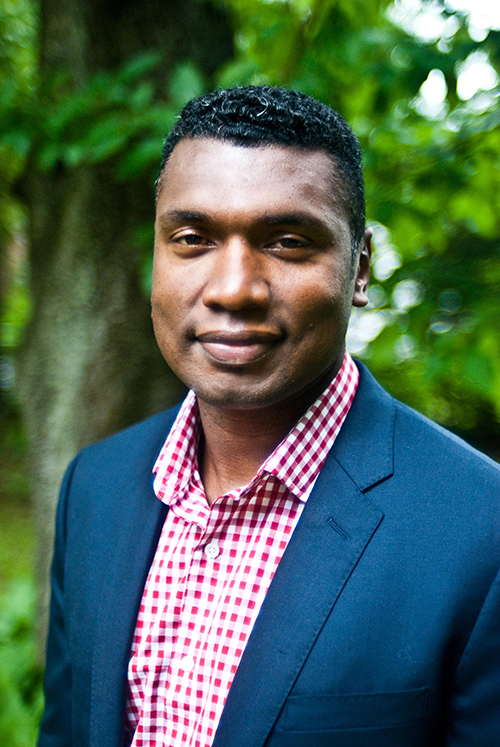With a $1 million grant from the Simons Foundation, Brown physicist Stephon Alexander will look to expand Einstein's theory of gravity to explain cosmic mysteries like dark matter and black hole singularities.
PROVIDENCE, R.I. [Brown University] - Einstein's theory of general relativity is one of the most successful theories in all of science. It posits that massive objects warp the very fabric of space and time, giving rise to the gravitational force that holds the universe together. The theory's predictions have been tested to remarkable precision, and it has passed every test so far.

But for all that success, there are things about the universe that the theory fails to explain, and areas where it appears to break down altogether. With a $1 million grant from the Simons Foundation, Brown physics professor Stephon Alexander will work on a new tweak to the theory, which may help explain puzzling aspects of the universe.
"General relativity works really well in terms of predicting the expansion of the universe, the existence of black holes and the existence of gravitational waves, just to name a few things," Alexander said. "But there are things that it fails to deal with, like dark matter and dark energy. And it produces infinities or singularities in the solutions for black holes and the big bang, which tells us that the theory is breaking down in those cases."
To help address the questions that general relativity leaves unanswered, Alexander is working to adapt a mathematical theory originally developed by Shiing-Shen Chern and James Simons. Alexander started the work more than a decade ago, publishing an influential study in 2009 that introduced what he calls "dynamical Chern-Simons gravity." With this new grant, Alexander plans to continue those efforts with Brown graduate student Leah Jenks.
"This is a modification to general relativity that makes a series of very sharp predictions," Alexander said. "What we want to do is continue to develop this theory and see if we can reconcile it with some of the areas where Einstein's theory runs into trouble."
Early indications, Alexander said, suggest that the modified theory may offer explanations for dark matter, the elusive stuff thought to account for the majority of the mass in the universe, and dark energy, the force driving the universe's ever-accelerating expansion. It could also shed light on black hole singularities, points at which Einstein's theory predicts an infinite curvature of time and space.
Alexander's work will also yield experimental approaches to testing whether dynamical Chern-Simons gravity is on the right track. For example, the theory could make some very specific predictions about the nature of gravitational waves - ripples in spacetime produced by ultra-high-energy events like the merger of two black holes or the Big Bang itself. Einstein predicted their existence in 1916, and they were finally observed in 2015. Alexander says that if his theory is correct, then those waves should have a peculiar - and detectable - property in the way they spin.
"If you could somehow see a gravitational wave propagating toward you, you'd see it undulating up and down as it moved," Alexander said. "But it could also have a kind of spin, a little like a football spiraling as it moves through the air. Our version of this theory suggests that there should be an asymmetry in the spins of gravitational waves, with more waves spinning in one direction than the other. We could look for that asymmetry, which would give us some validation for this theory."
Making those measurements will require a precise calculation of spin properties, Alexander says. He and Jenks will work to refine the theory to make sure they have the best predictions possible.
The grant from the Simons Foundation awards cutting-edge theoretical work with the potential for redrawing the boundaries of scientific knowledge. Alexander says he's thrilled about the foundation's investment in this new theory.
"It's great to have the support of such a prestigious organization for myself and my students," Alexander said. "I'm looking forward to getting started."






